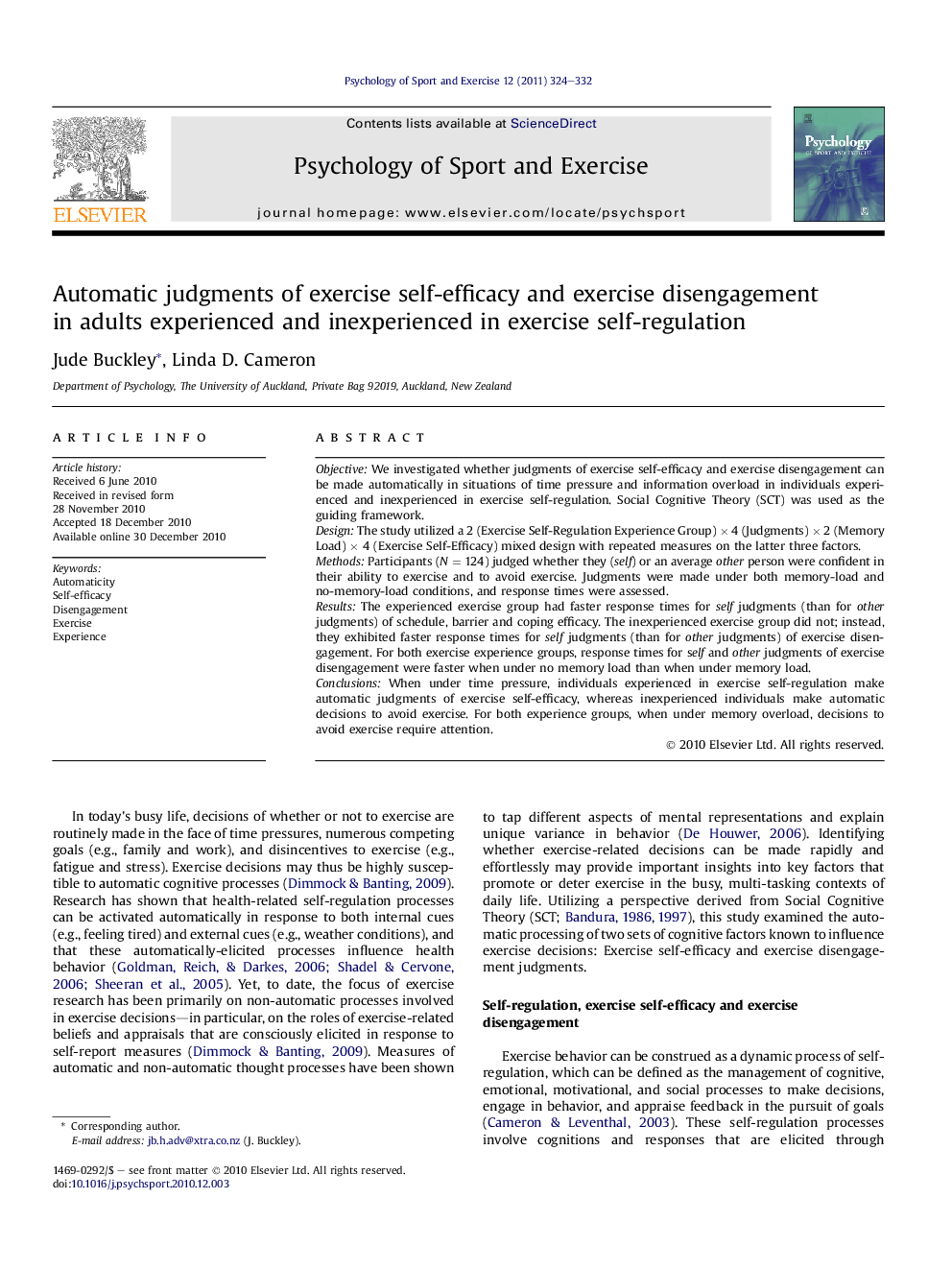| Article ID | Journal | Published Year | Pages | File Type |
|---|---|---|---|---|
| 894705 | Psychology of Sport and Exercise | 2011 | 9 Pages |
ObjectiveWe investigated whether judgments of exercise self-efficacy and exercise disengagement can be made automatically in situations of time pressure and information overload in individuals experienced and inexperienced in exercise self-regulation. Social Cognitive Theory (SCT) was used as the guiding framework.DesignThe study utilized a 2 (Exercise Self-Regulation Experience Group) × 4 (Judgments) × 2 (Memory Load) × 4 (Exercise Self-Efficacy) mixed design with repeated measures on the latter three factors.MethodsParticipants (N = 124) judged whether they (self) or an average other person were confident in their ability to exercise and to avoid exercise. Judgments were made under both memory-load and no-memory-load conditions, and response times were assessed.ResultsThe experienced exercise group had faster response times for self judgments (than for other judgments) of schedule, barrier and coping efficacy. The inexperienced exercise group did not; instead, they exhibited faster response times for self judgments (than for other judgments) of exercise disengagement. For both exercise experience groups, response times for self and other judgments of exercise disengagement were faster when under no memory load than when under memory load.ConclusionsWhen under time pressure, individuals experienced in exercise self-regulation make automatic judgments of exercise self-efficacy, whereas inexperienced individuals make automatic decisions to avoid exercise. For both experience groups, when under memory overload, decisions to avoid exercise require attention.
► We investigate whether exercise judgments can be made automatically in experienced and inexperience exercise self-regulators. ► We examine changes in response times for self and other judgments in memory-load and no-load conditions. ► Exercise self-efficacy judgments were automatic for experienced exercise self-regulators. ► Exercise disengagement judgments were automatic for inexperienced exercise self-regulators.
